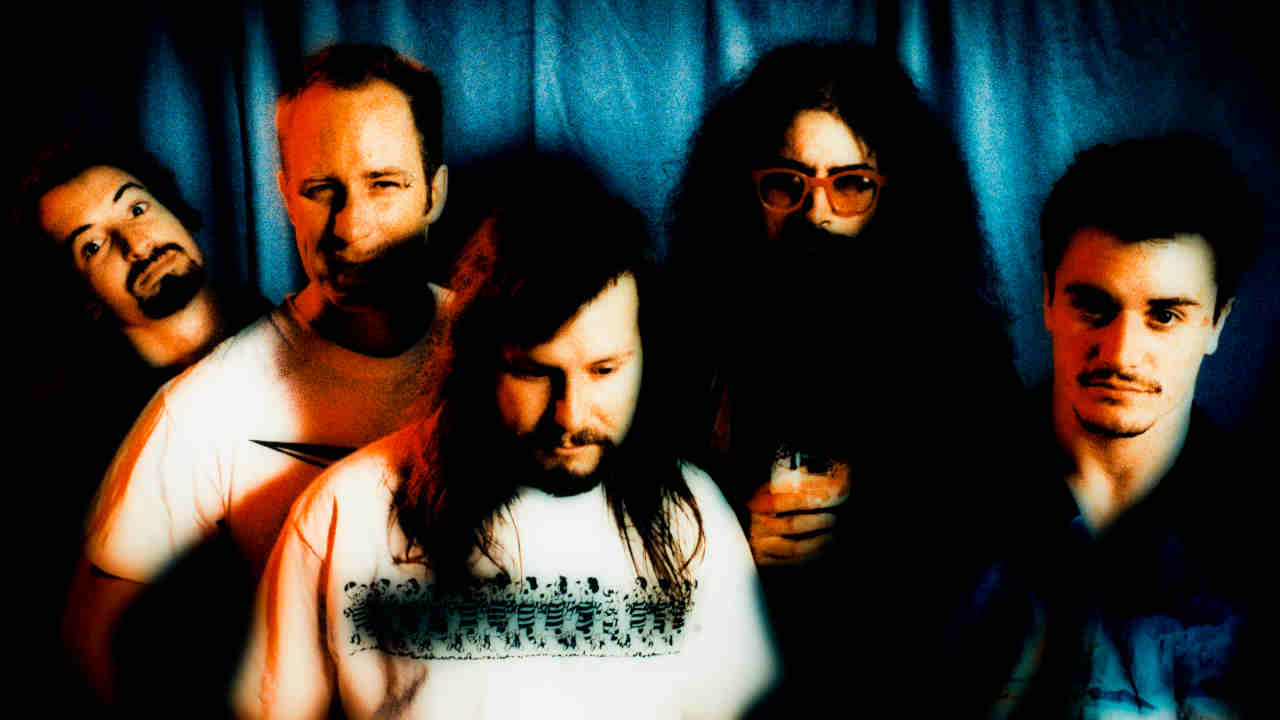“We like to melt faces”: how Gojira became the most important metal band of the decade
With Fortitude, Gojira have delivered the year’s boldest metal album. Joe and Mario Duplantier look back on the 20-year journey that brought them here
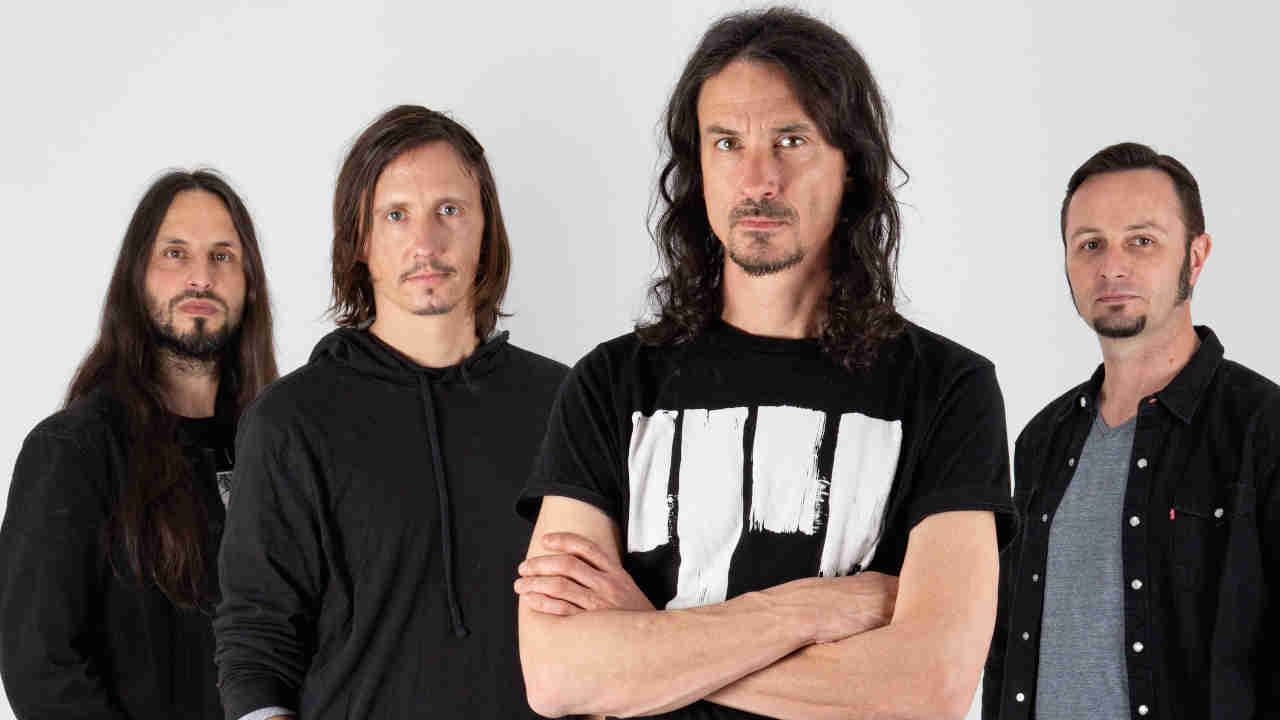
Joe and Mario Duplantier were working on Gojira’s seventh album, Fortitude, in the autumn of 2019, when the news hit the headlines: the Amazon was on fire. Not just a small, natural fire, but acres set ablaze by land-grabbing farmers and loggers, killing wildlife and endangering tribes across Brazil and other South American countries.
Most people are so numb to the 24-hour news cycle that they’d see the story and move on. Not the Duplantier brothers.
On that same day, sick to their stomachs, they took to their instruments and played with white-hot rage. The result was recent single Amazonia, a groove metal anthem driven by a jaw harp, augmented by throat singing and inspired by the tribal percussive barrage of Roots-era Sepultura. ‘The greatest miracle is burning to the ground!’ cries Joe.
But it wasn’t enough to write a song about the Amazon crisis; they wanted to do something about it, too. Frontman Joe made phone call after phone call looking for advice on how to help, and met with indigenous leaders, before the band launched an online auction and released a limited-edition art print to raise money for an NGO, The Articulation Of Indigenous Peoples Of Brazil (APIB).
“It was very, very emotional and intense to talk to these people. I was shaking,” remembers Joe, speaking to us via a video call. “It was on Zoom. The indigenous people have to use modern tools now to communicate on their situation, and to protect themselves against criminal attacks, gunshots and fires.”
It’s a story that sets Gojira apart from every other metal band. They took a feeling of powerlessness and not only turned it into brilliant, angry music, but decisive action. It feels like they’re striving to figure out the purpose of their lives, and leave the world in a better place than they found it.
Gojira are the first band in years to challenge metal’s old guard. Not by using gimmicks, like Slipknot’s masks, Sabaton’s tanks or Ghost’s popes, but simply by being themselves. Their unfiltered hopes and fears about living and dying blast urgently out of the music, empowering you to confront them yourself. Metallica’s Kirk Hammett called their last album, 2016’s Magma, “an incredible piece of art”.
Sign up below to get the latest from Metal Hammer, plus exclusive special offers, direct to your inbox!
They’ve inspired awe in the next generation, too. Black Peaks frontman Will Gardner has been a fan since hearing 2005’s crushing From Mars To Sirius: “What really got me into them in the first place was they have a uniquely powerful but deeply emotive sound – their music can be insanely heavy or super-technical, but there’s humanity at the core of it.”
Now they’re about to release Fortitude – a stunning album that values the potency of meditative chanting as much as cathartic blastbeats. Like a supporter on the sidelines of a marathon, they urge people to bear up, push past obstacles and realise their potential. Gojira are more than just the band metal needs right now. They’re the band the planet needs right now.

Gojira aren’t your typical celebrities, and they know it. Joe is first to join today’s video call, while younger brother/drummer Mario keeps us waiting. “He’s such a rock star,” quips Joe, before phoning France’s mild-mannered answer to Axl Rose to see where he is.
They will never have stories about sex, drugs and rock’n’roll, but they’re interesting precisely because they don’t put up a front; they are their authentic selves. Modest but self-possessed, Joe takes the lead and is first to answer questions directed at them both, while Mario shades in the colour of forgotten details.
The pair formed Godzilla in France in 1996, when Joe was 19 and Mario was just 14. Fired up by the gruesome death metal they heard blasting out of the US underground, they wanted to make music that measured up to their heroes’ standards. Brutal Abortion, Rigor Mortis and Bleeding are some of the song titles on Gojira’s four early demos.
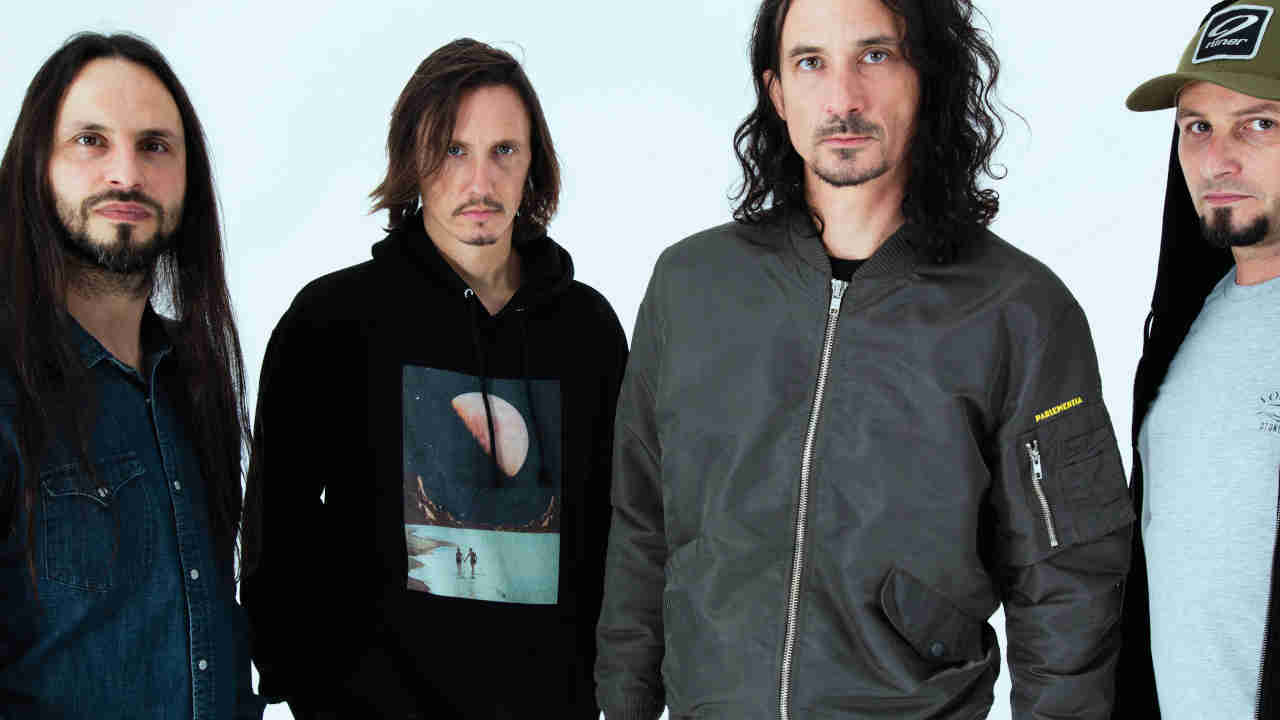
“We were collectively in that energy, listening to a lot of Morbid Angel and Cannibal Corpse and Death, and we had this absolute fascination for this world: music that would talk about bloody things and death, and ghosts and fear. It was almost like trying to understand the rules of a game; we were trying to fit, in that world, for a little bit. But then very quickly, we understood how we could create our own world by breaking these limits,” explains Joe. “Mario was taking it super, super-seriously. He had long hair…”
“…Yeah, my dream was just to be in Tampa, Florida,” enthuses Mario, “and going to the Morrisound Studio [where Morbid Angel, Cannibal Corpse and Death recorded seminal albums], because all the production that came from that studio was amazing.”
Released in 2001, debut album Terra Incognita marked that shift into their own world. By this time they had swapped original bassist Alexandre Cornillon for Jean-Michel Labadie, changed their name to Gojira, and were merrily subverting death metal’s tropes. Bludgeoning opener Clone featured clean singing and warned against interfering with Mother Nature. Instrumentals foregrounded primitive percussion and yelling. There was even a song called Love.
“We sort of had an epiphany,” says Joe. “And we realised, ‘OK, it’s OK to call a song Love.’ It’s about love, it’s death metal, but it works, actually, because love is freaking powerful, and can also be destructive. And so we got rid of all the notions of what is acceptable or unacceptable in our music pretty early on.”
Exploring existential themes, each record includes passages, interludes or short songs that complement the onslaught: unexpected sounds in the gaps of their death metal vertebrae. Yet The Chant, from new album Fortitude, still comes as a surprise. A quasi-dub rock song punctuated by a laid-back vocal refrain, it’s further than they’ve ever gone before.
“The Chant expresses our intention that we put behind every song, which is an intention of unifying and compassion, and this chant is clearly a mantra or a prayer addressed to the sky, or addressed to the Unknown, or whatever the universe is,” explains Joe. “It’s very indigenous, in a way. And we have something indigenous in our music.”
Where does that indigenous quality come from?
“I don’t know,” he admits. “I think we were taught, through example, by our parents, to think outside the box. We had an Azorean, American mom that lived in France who was a yoga teacher, who was speaking differently to all the other moms in the village, with a different accent. She was very loud and outspoken. Our dad didn’t talk much, but he was teaching by example with a lot of hard work.”
Mario describes their dad, Dominique Duplantier, as a “typical French artist”, who’s grumpy, smart, sarcastic and fascinating. Mario’s friends were scared of him – and later, so was Joe’s wife (“The first time she saw him, she literally ran away. It was so funny!”). They good-naturedly point to his brief, stony-faced appearance halfway through the To Sirius video as evidence of why. He’s not interested in metal, but nevertheless borrowed money from the bank to fund Gojira’s first studio, at home, and even helped with the heavy lifting of construction.
In their secluded old house at the end of a hidden, bumpy road, the Duplantier family, which also included middle sibling Gabby, listened to world music, country music and African percussion. When the brothers began Gojira, there was no local metal scene, so they were on their own, obsessed with the aforementioned death metal bands across the Atlantic and inspired by Sepultura’s percussion on Chaos A.D. and Roots.
Ever curious, ever questioning, Joe still hasn’t worked out why they gravitated towards heavy music above all the other genres they’d been exposed to. “The mystery is, why did we get fascinated with metal in the first place?” he wonders. “But I’m not that surprised that we started to incorporate other elements early on.”

Before Godzilla or Gojira, there was just Joe and Mario. In Ondres on France’s southwest coast, population circa 4,000, most people were into surfing, hunting, trekking and going to the mountains and the beach. The Duplantier brothers, with their multicultural parents, loved the arts and messing about in the forest. They were outsiders. “People used to call us The Addams Family,” says Joe.
School was not a happy place for Joe. Bullies would pin him against the wall, chuck wads of wet toilet paper at him, and tease him for having hand-me-down clothes. “I didn’t like going to school at all. I found people very cruel. Someone who’s your friend one day is not your friend the other day… I guess I was too sensitive,” he says dismissively.
Five years younger, Mario found it easier and gelled better with his peers because he played tennis, but he remembers Joe as an introspective teenager who was captivated by thoughts of what lay beyond the village borders. “He was always fascinated by New York, for example, or baseball,” he recalls. “So I was more into the local concrete reality, and Joe was already travelling through his mind.”
“Yeah, maybe it was something unconscious; maybe I was intrigued by where our mum hailed from,” reasons Joe.
Their mum, Patricia Rosa, would tell Joe stories about her own schooldays in The Land Of The Free, where the creative arts were prized. In Joe’s school, they only had an hour of music tuition a week and were forced to play the flute. In her school, they were encouraged to try trumpet, cello, violin and guitar. “I was also intrigued by the mood that she was describing, and that she had herself. A very positive outlook on everything, full of energy,” he explains. “We were in a small town, too, so somehow I had dreams of change and escape.”
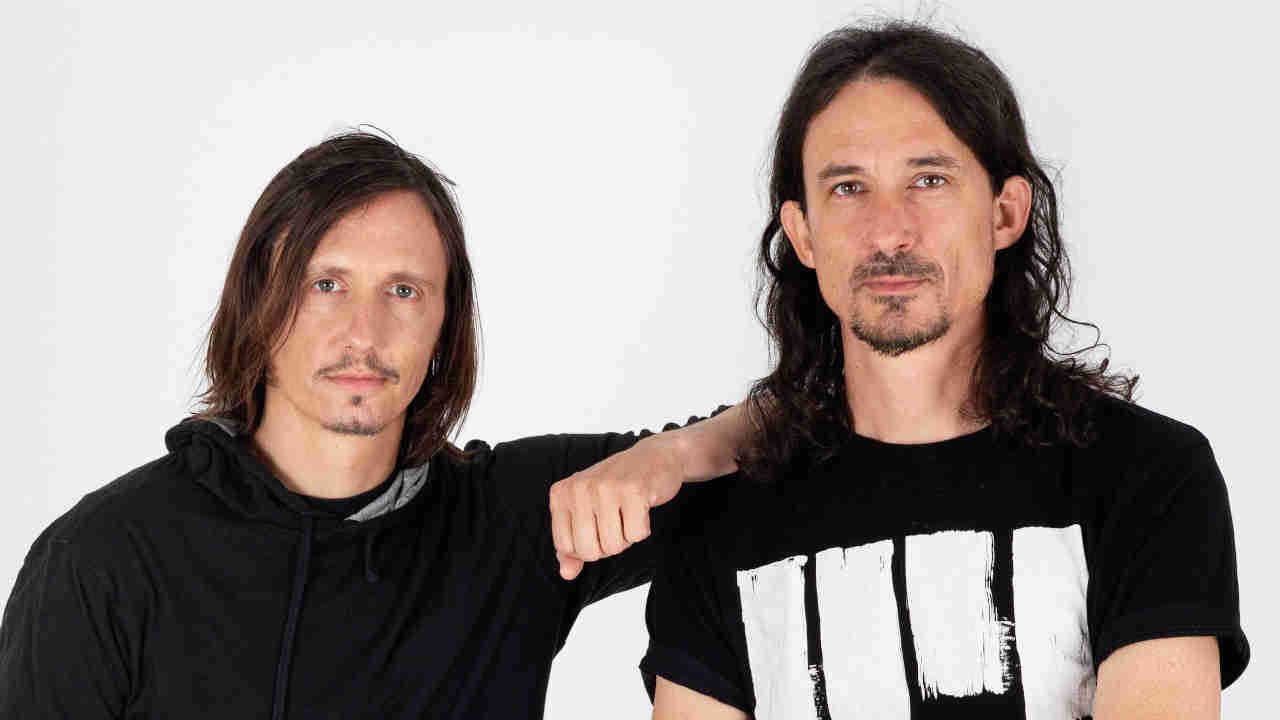
Those dreams came true at the age of 13, when Joe flew to the US for the first time, to visit family in Pennsylvania, near the capital of Harrisburg. At the airport, he and his cousin were greeted by his maternal uncle, and the sights they saw through the car windows, of looming skyscrapers and bustling crowds, were a welcome culture shock after the parochial environs of Ondres.
“He picked us up and drove us through New York, Manhattan, and Harlem and Brooklyn. My mind was blown, to see people rapping in the street, and all these different outfits and different skin colours, all these different communities. Fascinating, for a young kid that’s been dreaming,” Joe enthuses, his voice quickening. “And my dad told me, ‘You’ll see, you’ll go to New York, and you’re gonna come back and you’re gonna forget about it. It’s crazy over there, it’s all grey and polluted, and there’s too many cars.’ And I came back, and I was on fire. ‘I wanna live there!’”
“When Joe came back after one month, he was another person,” says Mario, turning to his brother. “The impact of this travel was huge for your life. You gained confidence, you felt better in your mind and body, I almost didn’t recognise you. You looked great!”
Joe’s American dream faded into the background as he became more politically aware, but after Gojira formed and gained a following, it began to return. Rather than waiting for a record company there to pick them up, they got themselves on a US tour with Amon Amarth and Children Of Bodom in 2006. It was Mario’s turn to freak out about the diversity and scale of the cities. “The first day I arrived, I was truly amazed. Joe had the first shock when he went at 13, my first shock was at 25 years old!”
It was 2011 when Joe eventually relocated to New York. Mario joined him later, and in 2014 they constructed a new headquarters, Silver Cord Studio. He’s still trying to figure out why he went ahead and emigrated. All he knows is that it felt right.
“When I finally moved to the States, I felt something was really working for me. A certain energy,” he explains. “I’m glad to experience both. The European side, and a French education, and some subtleties, and the idea of the Republic and the Revolution – it’s really deep in the French culture. And in America there’s the notion of the New World, and things need to be loud, and fun, and big. I know there’s a lot of judgement from Europeans for the Americans, sometimes. Because they want everything large. But there’s something interesting and freeing in this.”

Queens, New York. 2015. Gojira are jamming out the first song at Silver Cord. They name it Silvera – a ceremonious working title that sticks. Over the ensuing months, they write and record the rest of the album that will become Magma, a process that’s disrupted by the death of Joe and Mario’s mum, Patricia Rosa. Made with sadness and pain, it nevertheless expresses the joy they feel to be her sons. “Somehow her spirit is still around with us,” Joe told us.
Magma is released in June 2016, and connects with people like no other Gojira record. “It’s a very intimate and personal album, and I think the closer you get to your emotions, and the more honest you are, the closer to people you become,” Joe says. “It sounds almost like a paradox, but the more internal you are when you write a song, the deeper it’s gonna affect people. Magma has something like that.”
Later that year, they score a Grammy nomination for Best Rock Album, while Silvera is nominated for Best Metal Performance. In 2018, they triumphantly headline Bloodstock festival. To the outside world, Magma is a huge step up, but to Gojira it’s all part of the career they’ve been forging for years.
“People see the jump: ‘Oh my god, Gojira headlining on Magma is huge!’, but for us it was a lot of hard work to get there. And unless we screwed up that album big time, we were gonna get there eventually,” smiles Joe. “So for us, Magma was another good step forward, and there’s all these things that unfolded. But it’s a combination of all these albums, I think. Maybe I don’t realise how much these two songs, Stranded and Silvera, did also.”
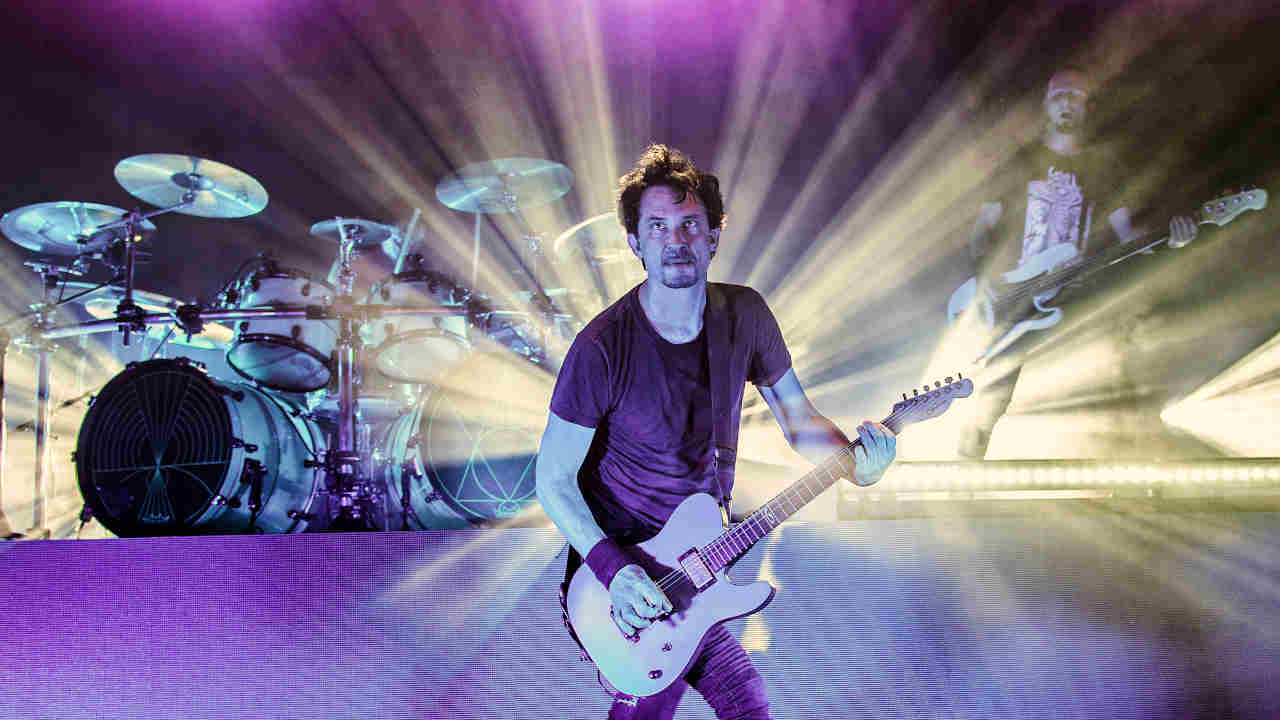
“I would say these two songs made a huge difference, because they were maybe more accessible, more well structured, with stronger choruses,” adds Mario.
“Yeah, probably. We changed our format a little. It became songs, when before they were epic tracks of metal, with a journey. But Fortitude is gonna smash Magma, just so you know!”
Joe grins. He knows it’s a cliché parroted by metal frontmen, but he means it. Less heart-on-sleeve than Magma, but a refined iteration of everything they’ve been working on for the past 25 years, it’s crushing. The songs are concise – coming in, melting your face, taking their leave.
Propulsive opener Born For One Thing unsettlingly stares death in the face, Joe growling from a primal place. Hold On opens with a vulnerable vocal harmony that would be perfectly at home on a Wardruna album, before descending into a sonic maelstrom that matches the ‘ocean of stress’ they’re urging us to fight. That familiar pick-scraping trick opens New Found, a classic Gojira rager designed for bellowing across a headbanging crowd enveloped in dry ice. The towering Sphinx and Into The Storm are nothing short of epic.
They considered the production more seriously than ever, holding auditions for the perfect drum tech, and bringing in the legendary Andy Wallace on mixing, who not only worked on landmark albums such as Slayer’s Reign In Blood and System Of A Down’s Toxicity, but their beloved Chaos A.D. and Roots. No wonder Amazonia sounds so earth-shattering.
It’s the song we talk about most today, as it’s clearly at the forefront of their minds. Due to political and police corruption, the situation for the indigenous people is desperate and ongoing.
“There’s a rate of suicide happening, I’ve been talking to people that are wearing bulletproof vests, sending their children away because they’re scared for their lives. So it’s pretty dramatic,” says Joe. “We’re hoping to communicate on that and really try to help, because our music represents that. It’s the strength of the forest; the force you find in nature is influencing us. Volcanos, waves and giant trees. So we almost have a responsibility to honour and protect it.”

For Joe Duplantier, Gojira is more than just a band. It’s more, even, than a vehicle to get across the urgent messages which underpin their music. “It’s a philosophical sort of quest,” he says. “Why are we here, what can we do to feel better in our shoes on an everyday basis? And it’s about our fears of dying, our fears of living, or breaking the boundaries, or finding one’s self. It’s therapeutic.”
But if Joe needs the band he has spent the last 25 years building, then the world needs them even more right now. If Fortitude feels like an important album, that’s because it is. It arrives at a tipping point – a moment when the world feels on the brink of toppling into chaos – and provides both a lifeline and a rallying call for their fans; if a band from an obscure French backwater can achieve this much through focus, perseverance and sheer force of will, then you can too.
Gojira embody a sea change in metal too. The old clichés – sex, drugs and the rest of it – are thankfully dying out. The scene is looking outwards as well as inwards, acknowledging the existential crisis every one of us faces as the planet heads towards political, personal and environmental ruin. With Fortitude, Gojira have delivered the perfect soundtrack – one that calls on everybody to pull together to get us out of this mess.
“You just ask yourself what you want to be in this life, what you want to achieve,” says Mario Duplantier. “Words are great, music is great, but action is something concrete.”
The Gojira that made Fortitude may feel like a different beast to the Gojira that made Terra Incognita or From Mars To Sirius, but it’s just the wrapper that has changed. Scratch the surface and you can still see the death metal fans beneath. “It’s in our DNA,” says Joe Duplantier. “Some people like to climb cliffs or fly kites… we like to melt faces.”

Eleanor was promoted to the role of Editor at Metal Hammer magazine after over seven years with the company, having previously served as Deputy Editor and Features Editor. Prior to joining Metal Hammer, El spent three years as Production Editor at Kerrang! and four years as Production Editor and Deputy Editor at Bizarre. She has also written for the likes of Classic Rock, Prog, Rock Sound and Visit London amongst others, and was a regular presenter on the Metal Hammer Podcast.
